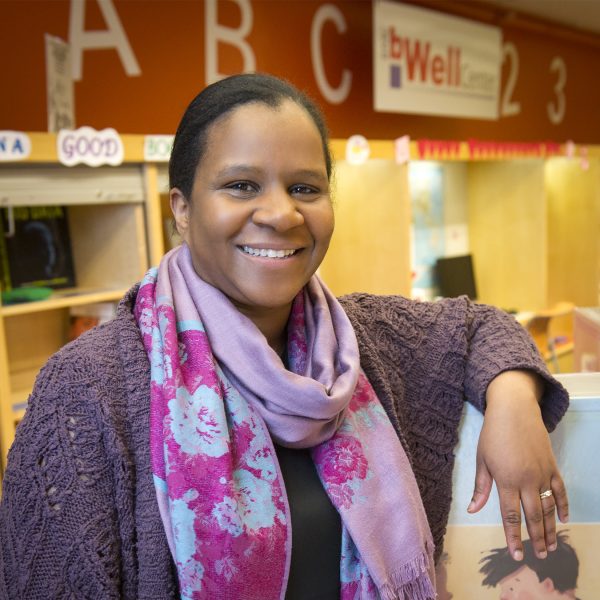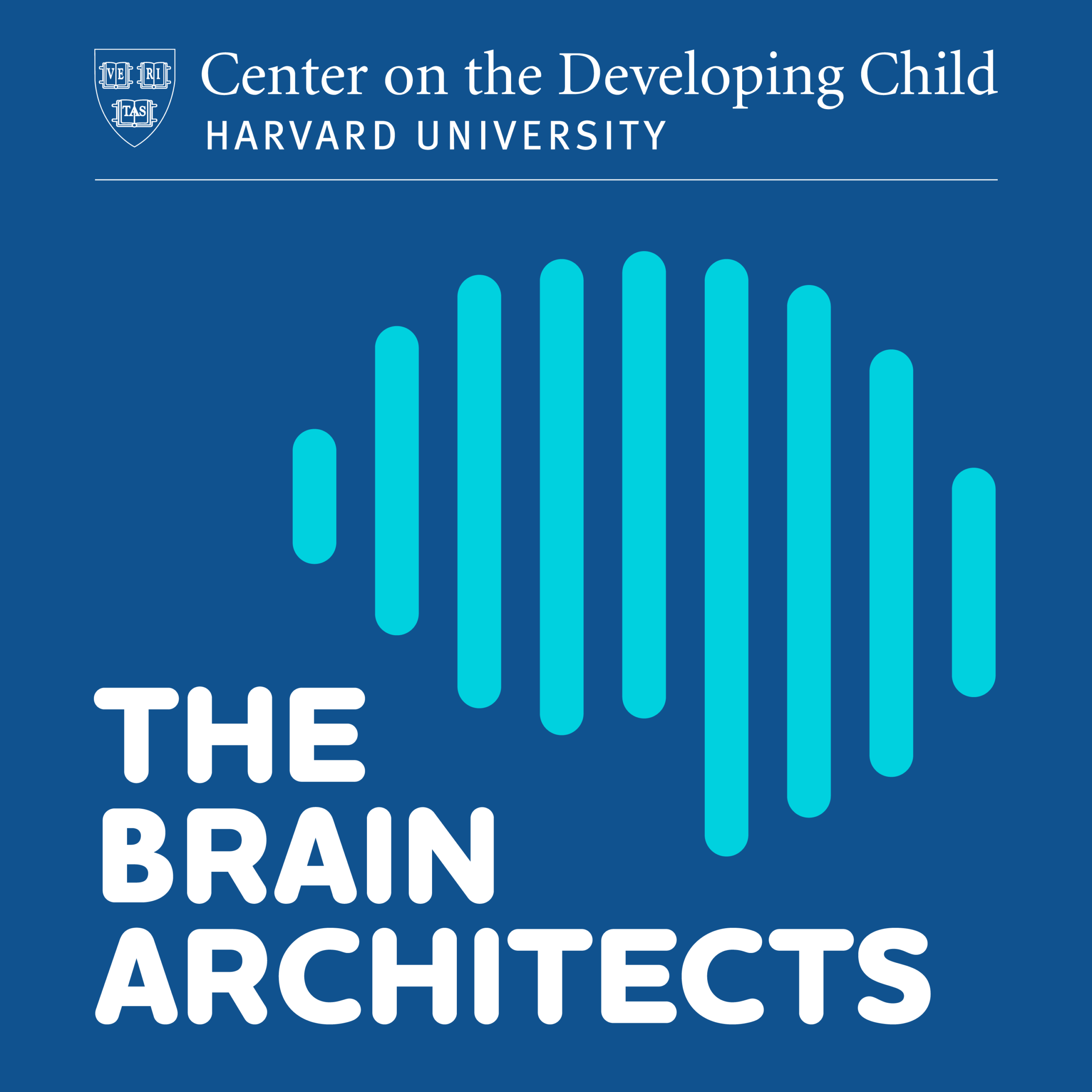COVID-19 Special Edition: Building from Strengths: Post-Pandemic Partnerships in Health Care
Description
The devastating toll of the pandemic has underscored the critical importance of connecting what science is telling us to the lived experiences of people and communities. In March of 2020, we recorded episodes exploring the impact the coronavirus pandemic could have on child development. Now, a year later, we wanted to continue these conversations and discuss what we’ve learned, what needs to change, and where we go from here.
In the third episode in this 4-part special series, host Sally Pfitzer speaks with Dr. Renée Boynton-Jarrett, the founding Director of Vital Village Networks at Boston Medical Center and an Associate Professor of Pediatrics at Boston University School of Medicine. They discuss the cost of failing to address structural inequities with sustainable and comprehensive policy changes, the vital role community leaders played during the pandemic, and why health care systems need to demonstrate trustworthiness.
The next and final episode of this special podcast series will focus on the pandemic’s impact on the mental health system.
Subscribe below via your podcast platform of choice to receive all new episodes as soon as they’re released.
Speakers
<figure id="attachment_4958" aria-describedby="caption-attachment-4958" style="width: 125px" class="wp-caption alignnone">
 <figcaption id="caption-attachment-4958" class="wp-caption-text">Sally Pfitzer, Podcast Host</figcaption></figure>
<figcaption id="caption-attachment-4958" class="wp-caption-text">Sally Pfitzer, Podcast Host</figcaption></figure><figure id="attachment_4959" aria-describedby="caption-attachment-4959" style="width: 125px" class="wp-caption alignnone">
 <figcaption id="caption-attachment-4959" class="wp-caption-text">Dr. Renée Boynton-Jarrett, Founding Director of Vital Village Networks at Boston Medical Center and Associate Professor of Pediatrics at Boston University School of Medicine</figcaption></figure>
<figcaption id="caption-attachment-4959" class="wp-caption-text">Dr. Renée Boynton-Jarrett, Founding Director of Vital Village Networks at Boston Medical Center and Associate Professor of Pediatrics at Boston University School of Medicine</figcaption></figure>Additional Resources
- Vital Village Networks
- The Brain Architects Podcast: COVID-19 Special Edition: Creating Communities of Opportunity
- Thinking About Racial Disparities in COVID-19 Impacts Through a Science-Informed, Early Childhood Lens
- Early Childhood Adversity, Toxic Stress, and the Impacts of Racism on the Foundations of Health
- Brief: Moving Upstream: Confronting Racism to Open Up Children’s Potential
- Infographic: How Racism Can Affect Child Development
- Re-Envisioning, Not Just Rebuilding: Looking Ahead to a Post-COVID-19 World
- Working Paper 15: Connecting the Brain to the Rest of the Body: Early Childhood Development and Lifelong Health Are Deeply Intertwined
- InBrief: Connecting the Brain to the Rest of the Body
- A Guide to COVID-19 and Early Childhood Development
Transcript
Sally: Welcome to The Brain Architects, a podcast from the Center on the Developing Child at Harvard University. I’m your host Sally Pfitzer. In March of 2020, we recorded episodes exploring the impact the coronavirus pandemic could have on child development. You may remember we discussed the importance of self-care for caregivers, and the importance of physical distancing, not social distancing. And now a year later, we wanted to continue those conversations and discuss what we’ve learned, what needs to change, and where we go from here.
On today’s podcast, we have Dr. Renée Boynton-Jarrett, who is the founding Director of Vital Village Networks at Boston Medical Center and an Associate Professor of Pediatrics at Boston University School of Medicine. So good to have you with us, Renée.
Dr. Boynton-Jarrett: Delighted to be here. Thank you, Sally.
Sally: Renée, in March of 2020, we spoke with Dr. David Williams, who explained that many of the disparities that we saw in the early stages of the pandemic were predictable and the result of longstanding social policies and systemic racism. From your perspective, as an expert in the field, in the past year, what have we learned about these disparities?
Dr. Boynton-Jarrett: I think what Dr. Williams shared is absolutely correct. What we saw happen with the COVID-19 pandemic is it took advantage of the existing inequities and just widened those. So actually, our existing structural racism created a broader opportunity for the pandemic to disparately impact the lives, the well-being, and the health of communities of color and communities that are disproportionately impacted by structural racism. And so, I think one of the things that we have learned or relearned is the tremendous cost of failing to truly address structural inequities with sustainable and comprehensive policy changes.
And as importantly, because we know structural racism is around these interconnected systems and institutions, but there are also these ideologies, mindsets, ways of thinking and being. And if we think about it, those ideologies and mindsets about who’s okay just to remain at risk, to not have the luxury of physical distancing, to not have the luxury of having water to wash hands and do the hygienic practices. We’ve learned that we also have mindsets that truly impact the way in which we view humanity and human dignity and human rights, and that this pandemic has completely taken advantage of the ways in which those mindsets, ideologies, and systems create structures of inequities.
Sally: Could you give us some examples of what changes you think need to happen in the field, particularly how communities and neighborhoods could help?
Dr. Boynton-Jarrett: Yeah. I think your question actually hits on where I see the biggest opportunity for change. So, one of the things we saw happen over and over during the pandemic is in the absence of plans. Strategic plans and responses are being created in real time, and often those decisions—whether they were decisions being made about how vaccines would roll out, whether they were decisions being made about what economic supports and resources will come to families, or what will happen with early care and education, childcare, school—we saw time and time again decisions being made that were not being made with true engagement. Not just engagement of communities, but engagement of community leadership. So really, in partnership with, in conversation with. Those who were closest to the inequities—experiencing them most directly—were not being engaged or brought to the table.
And time and time again, we also saw that the ideas, the wisdom, the strategies that were actually happening within communities were thoughtful, were creative, were real-time responsive. And actually, when we begin to get behind them, we see more protection happening for communities. So, we also saw tremendous community leadership, and in the absence of that leadership, I think that we would have all fared much worse in this pandemic.
Sally: Just anecdotally, I’ve seen that even in some of the work we’ve done at the Center too, and often finding that bringing in members of the community actively from the beginning of projects has been the thing that has made those projects so much more successful. Could you tell us more about your work at Vital Village Networks?





